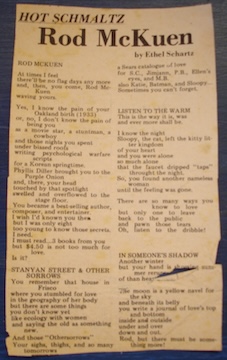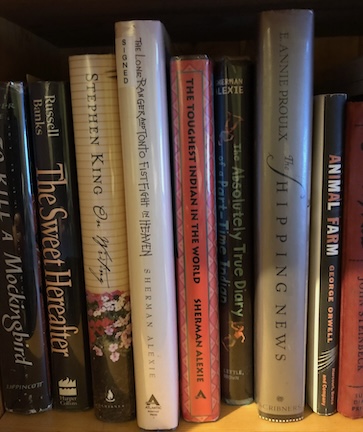My grandfather was hauled off to a state mental hospital after he went after my grandmother with a hoe. The story goes my grandmother knocked him out with a bucket and thought he was dead. When the police came, he was taken away to one of the state mental hospitals that existed then. His diagnosis, I believe: clinical paranoia.
I didn’t see Vovô, as we kids called him, very often after that incident, but I recall visiting him at the hospital on Father’s Day. (Vovô was the grandfather on my mother’s side of the family, which included two sisters.)
On that day, my father drove our family to the hospital. My uncle brought his, which included my aunt and two cousins, plus my grandmother. One time, another aunt, my mother’s youngest sister, came.
The family brought Vovô a carton of cigarettes and made a picnic of the visit on the hospital grounds, with food, croquet, and a game of Wiffle Ball. Vovô insisted on taking us kids to the canteen for Hoodsie Cups ice cream and to introduce us to his friends. I felt half-afraid and half-curious by the experience.
By the way, the photo above is a family portrait my mother took on one of those visits. Vovô wears the suit. My grandmother, Vovó, sits on the bench holding my brother. I was only 12 and the girl on the far left.
Let me tell you a little about Vovô. He came over on the boat from Madeira when he was young and married my grandmother, who came from the same island, here. They worked in the textile mills of New Bedford, Massachusetts. A hard worker, during the Depression he bought a home in the small town of Acushnet, where the family grew and raised much of their food, plus took in boarders. He and my grandmother took English lessons and converted to a Protestant religion. Vovô made his two oldest daughters drop out of high school so they could work in the textile mills or watch the house when he and my grandmother were at work.
I don’t recall Vovô being a warm man. But then again, I imagine it was a huge adjustment emigrating to a new country and one so different than the Portuguese island where he once lived. One of my cousins told me recently our grandfather was bullied by his co-workers.
Vovô spent the last years of his life at Taunton State Hospital. He made a life for himself there. He had a job working in the laundry and even a girlfriend, whom we kids met one Father’s Day. She waited beside a tree on the grounds to meet us. My grandmother refused to divorce him.
He tried coming home once but that didn’t last long.
Vovô died while he watched a movie at the hospital. The lights came on and he was already gone. I went to the wake but not the funeral. I was a teenager then.
Years later, I worked and lived in a psychiatric halfway house, which took in patients from state and private hospitals. At that time, Massachusetts was closing its hospitals and placing people in such places. The staff was untrained and inexperienced. We were supposed to be role models and helpful roommates, I suppose. That experience inspired a novel I wrote, The Swanson Shuffle, but have yet to publish.
The halfway house’s staff had a ring of keys that unlocked every ward in the closest hospital, Foxborough State, so we could come and go freely. When I did, I thought of my grandfather and how he got used to living in one.







